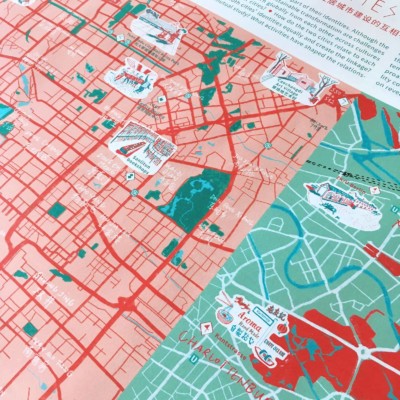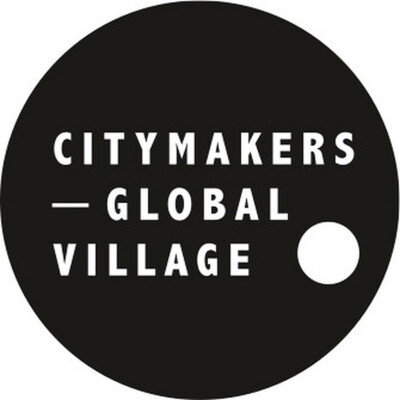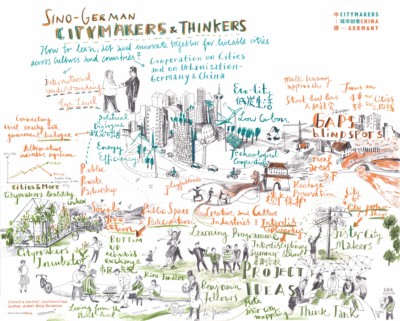Cities are complex systems and city making is thus a broad arena. The CITYMAKERS program has identified three key areas for further attention, all of them relevant to the topic of livable city making:
The Future of Housing and Living
Promoting community integration and generational interaction, as well as openness and global values, was identified as a key goal by both Chinese and German participants in the CITYMAKERS Meet-Up. Chinese participants high- lighted the difficulty of integrating migrant workers into cities, along with the problems caused by expensive housing, leading to urban segregation and social division. Much new housing also suffers from poor construction quality, not always ideally located for other needs. Proposals included creating Sino-German Urban Pioneers, local city-based think tanks, to discuss such issues, and to research issues such as purchasing land to build housing cooperatives, along with a starter kit on ‘community-focused living space.’
Urban Agriculture
Long popular in Germany, urban gardening and farming has been a difficult undertaking in Chinese cities, with most land swallowed up for development. Yet in a traditionally agricultural society, where many recent rural-urban migrants have experience of growing their own crops, more and more Chinese social entrepreneurs are starting to pioneer in this field – from NGOs establishing farmer’s markets, to we-gardening community initiatives. Such initiatives contribute to sustainability, promote food safety, and provide opportunities for unemployed or marginalized young people. Promoting knowledge by linking grass- roots participants from both countries, training volunteers to educate interested citizens, and setting up garden spaces and demonstration gardens in twin cities could all encourage this growing trend, and help advocate for policy change.
Cultural Memory, History and Heritage
As noted above, worries about the loss of heritage and distinctiveness in Chinese cities are a concern, while culture plays a key role in creating livable cities. Previously, culture has not been a focus of urbanization-related cooperation between China and Germany. However, thinking about cities more culturally will add value and provide more holistic solutions. There are many areas of potential cooperation, from research on shared Sino-German cultural heritage in China, to sharing examples of best practice based on Germany’s growing emphasis on preserving cultural memory. Society organizations and grassroots actors on both sides should be encouraged to contribute to the process of city making, including in dialogue with top-down administrators – a contextualized approach to grassroots involvement in China is vital.
Further topics not yet on the agenda within urbanization-related cooperation, which complement our approach of social entrepreneurship in city making, include: Social impact investment and financing (including the development of social impact assessment tools), and further legal and policy frameworks for social entrepreneurs (e.g. tax incentives). The role of water, and its links to power in China – where many areas of the country are a ected by severe water-shortages, and water is often diverted to major cities to meet their needs – has also been proposed as a topic suitable for investigation through a fresh and interdisciplinary lens.
Integrated urban development and urban governance – already on the agenda both domestically in China, and in the field of Sino-German cooperation – were highlighted as equally important during our CITYMAKERS Dialogues.
This article is part of the OVERVIEW ANALYSIS in the CITYMAKERS Recommendations 2016.




